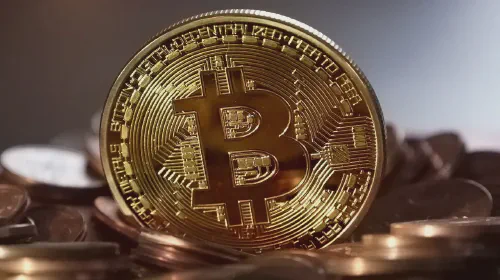Exploring Quantum Computing Hardware: Components and Functionality Explained
Salomon Kisters
Jul 12, 2023This post may contain affiliate links. If you use these links to buy something we may earn a commission. Thanks!
Quantum computing is an exciting and rapidly evolving field that has the potential to revolutionize various industries and solve complex problems that are currently intractable for classical computers. At the heart of this promising technology lies quantum computing hardware.
In this blog post, we will explore what quantum computing hardware is, how it differs from classical computing hardware, and the different types of components involved in creating a quantum computer.
Understanding Quantum Computing Hardware
To comprehend quantum computing hardware, it is essential to grasp the basic principles of quantum computing. Unlike classical computing, which relies on bits that can be either 0s or 1s, quantum computing leverages qubits, short for quantum bits. Qubits introduce the concept of superposition, where they can exist in multiple states simultaneously, allowing for parallel computations and a vast increase in computational power.
Components of Quantum Computing Hardware
Creating a functional quantum computer requires several key elements. Let’s delve into some of the most crucial components of quantum computing hardware:
1. Qubits
As mentioned earlier, qubits are the basic units of quantum computing hardware. They are fragile and susceptible to interference from the environment, making effective qubit design and error correction mechanisms critical for the successful operation of quantum computers. Scientists and engineers have explored various physical systems to implement qubits, such as superconducting circuits, trapped ions, topological states, and even photons.
2. Control Systems
In order to manipulate qubits and perform computations, quantum computers require precise control systems. These control systems typically consist of specialized electronics and microwave sources to generate signals that manipulate the qubits. The control systems play a crucial role in executing quantum algorithms by providing the necessary operations on the qubits while also minimizing errors and preserving qubit coherence.
3. Cryogenic Systems
Another critical aspect of quantum computing hardware is the need for extremely low temperatures. Quantum computers operate at temperatures very close to absolute zero to minimize thermal noise and maintain qubit stability. Cryogenic systems, such as dilution refrigerators, are used to cool the quantum hardware and maintain a stable and controlled environment for the qubits to operate reliably.
4. Quantum Gates
Quantum gates are the quantum equivalent of classical logic gates and are essential for manipulating qubits and performing computations. These gates, such as the Hadamard gate or the Pauli gates, allow for operations like superposition, entanglement, and quantum parallelism. Implementing these gates requires highly precise control over the qubits and can vary depending on the physical system chosen for qubit implementation.
5. Quantum Error Correction
Quantum computing faces significant challenges from errors that arise due to the sensitive nature of qubits. Quantum error correction is a crucial aspect of quantum computing hardware that aims to minimize or mitigate these errors. Various error correction codes have been developed to detect and correct errors in qubit states, helping to preserve the integrity of quantum computations.
Quantum Computing Hardware Developments
The field of quantum computing hardware is dynamic, with ongoing research and innovation to overcome existing challenges and improve performance.
Researchers are continually exploring new techniques to enhance the quality of qubits, reduce noise, increase control capabilities, and improve error correction mechanisms.
As a result of these advancements, quantum computers are becoming increasingly powerful and reaching a stage where they can tackle meaningful real-world problems.
Conclusion
In this blog post, we have explored the world of quantum computing hardware, its fundamental building blocks, and the critical components required for the functioning of a quantum computer.
By harnessing the unique properties of qubits, leveraging precise control systems, and incorporating error correction techniques, quantum computing hardware enables us to delve into the exciting realm of quantum computing.
As research continues and technology advances, quantum computing has the potential to revolutionize industries, solving problems that were previously viewed as insurmountable.
So, buckle up and get ready for the quantum revolutio
Stay informed with the latest insights in Crypto, Blockchain, and Cyber-Security! Subscribe to our newsletter now to receive exclusive updates, expert analyses, and current developments directly to your inbox. Don't miss the opportunity to expand your knowledge and stay up-to-date.
Love what you're reading? Subscribe for top stories in Crypto, Blockchain, and Cyber-Security. Stay informed with exclusive updates.
Please note that the Content may have been generated with the Help of AI. The editorial content of OriginStamp AG does not constitute a recommendation for investment or purchase advice. In principle, an investment can also lead to a total loss. Therefore, please seek advice before making an investment decision.

Social Media Privacy - Essential Cybersecurity Tips
Learn how to protect your social media privacy with essential cybersecurity tips. Safeguard your personal data and stay secure online.

Boost Your Cybersecurity with Two-Factor Authentication
Learn how two-factor authentication can boost your cybersecurity by adding an extra layer of security to your online accounts, reducing the risk of cyber-attacks.

How Many Bitcoins Are There and How Many Are Left?
Learn about the total number of Bitcoins in circulation and how many are yet to be mined. Discover the impact of lost Bitcoins on the overall supply.
Protect your documents
Your gateway to unforgeable data. Imprint the authenticity of your information with our blockchain timestamp